Lost and discarded fishing gear, otherwise known as 'ghost gear', is a massive global issue for the welfare of marine animals.
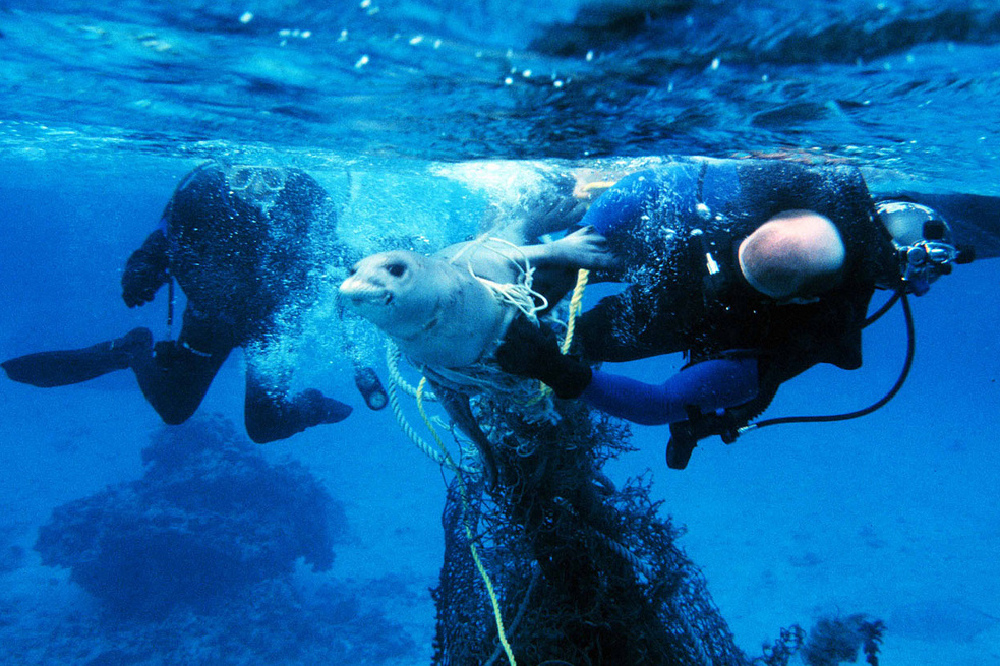
A seal entangled in a fishing net is rescued by divers
Here's 10 dangers posed by ghost gear to the marine environment;
Entangling animals: There have been reports of grey and common seals around the UK coast with debris 'collars' around their necks and flippers from pieces of ghost gear. This can cause horrific injuries like amputation and decapitation as the thin lines dig into their flesh.
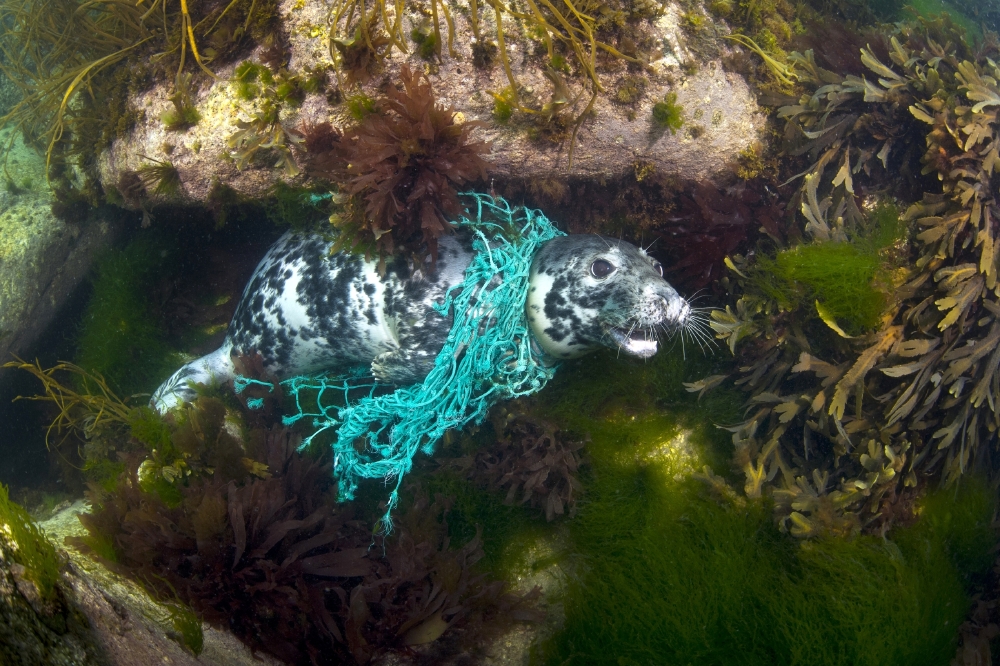
Female Grey seal tangled in a discarded fishing net, Devon, UK
Gannets and other seabirds often collect colourful fishing line to make nests.
This can result in entanglement, as well as the inability to fly, feed, nest or dive.
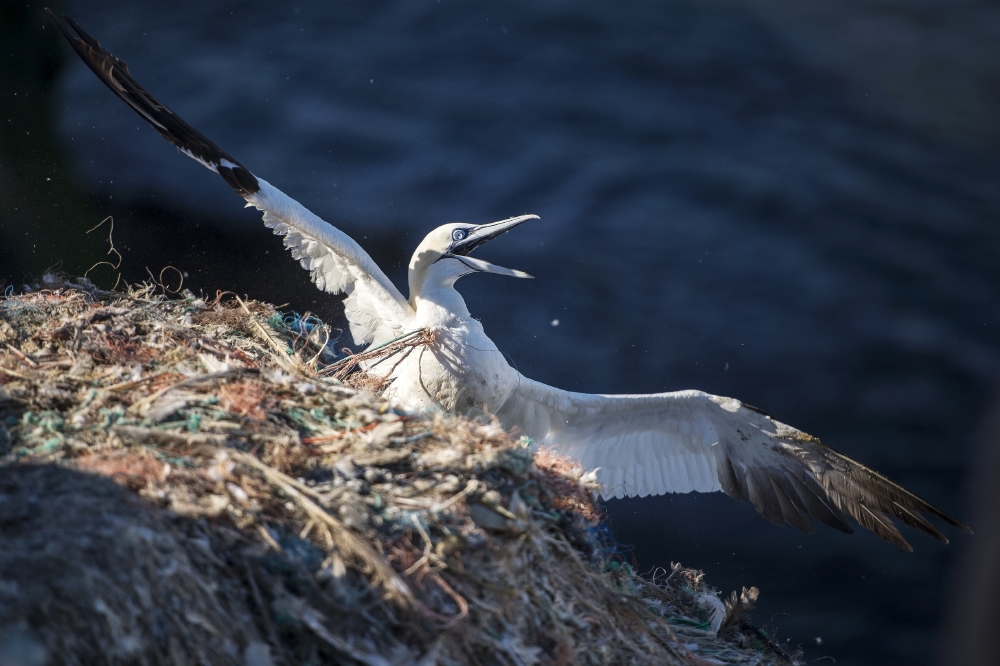
Adult northern gannet on RSPB Grassholm Island entangled in discarded ghost fishing gear (image: Lisa Morgan, RSPB)
Dolphins, whales and porpoises can become entangled in ropes and nets, dragging them around as they swim.
This means they struggle to feed or move freely and ultimately results in starvation or drowning when trapped in gear.
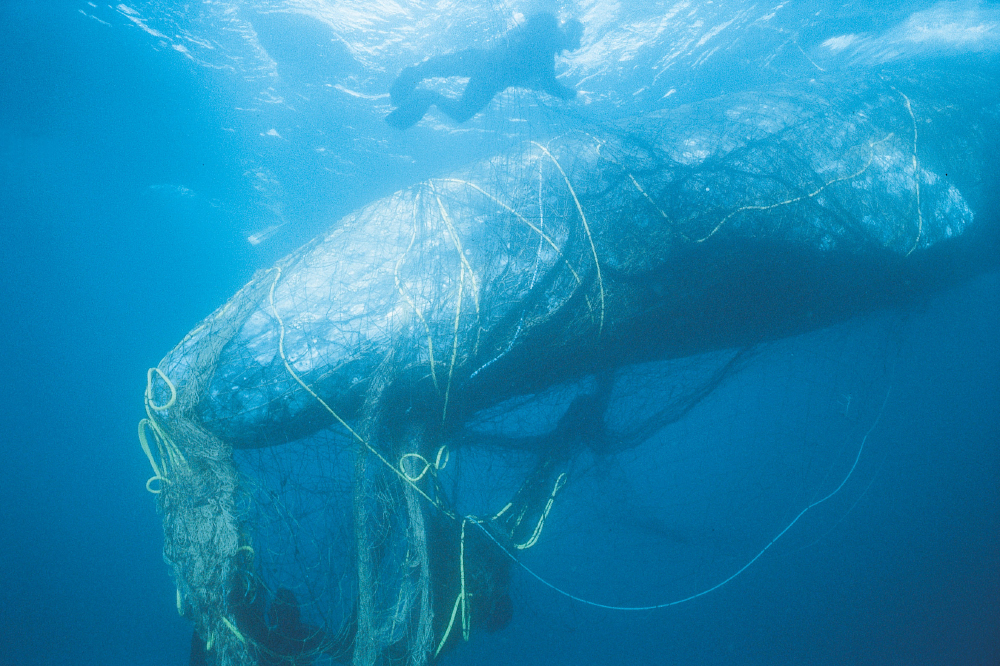
Rescuers untangle a gray whale from ghost net off the coast of California
Birds and fish are known to ingest small pieces of fishing gear.
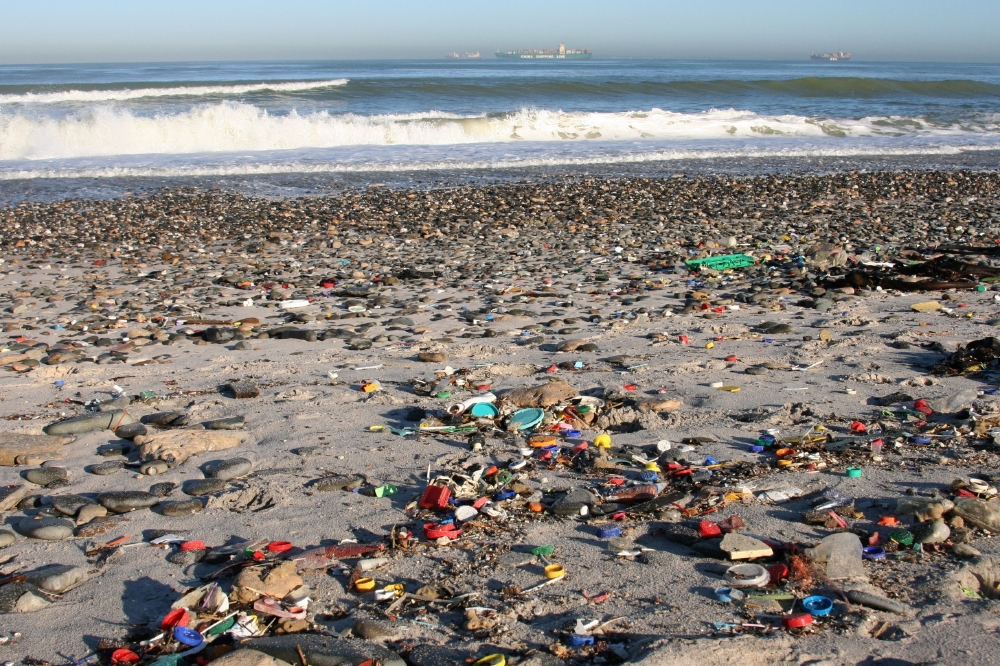
Plastic pollution washed up on a beach after a storm, Cape Town, South Africa
Lost nets can be tossed around on the sea floor in the currents.
They collect sand and other debris and smother corals and other precious marine flora.
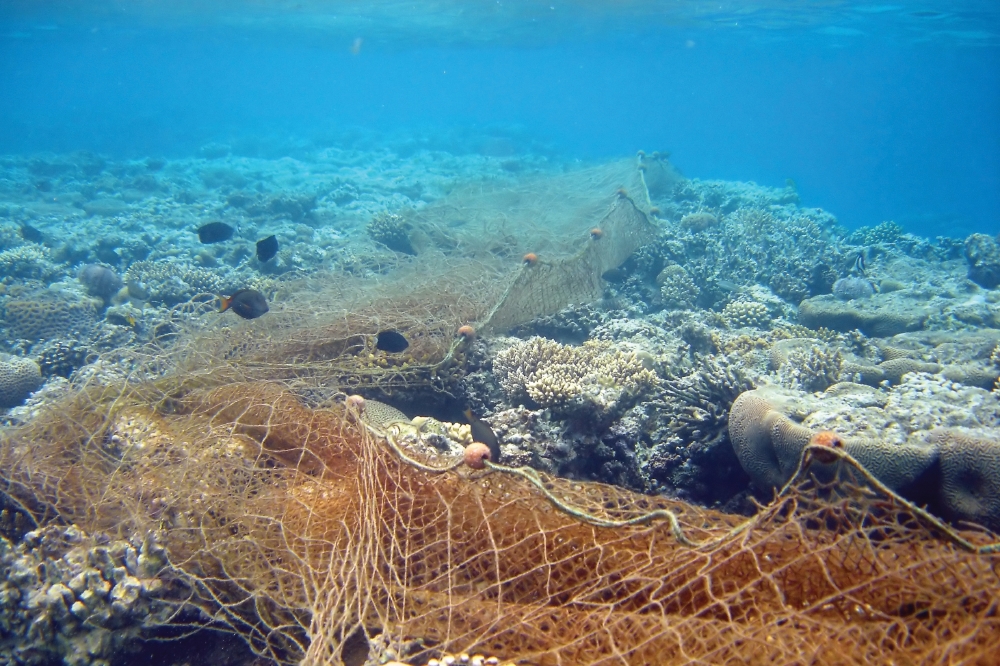
Fishing net wraps around coral off the coast of Jordan
Turtles are at risk of entanglement and can get their flippers caught in nets.
This can lead to flippers being amputated or the turtle drowning if they are unable to break free. Leatherbacks are one type of turtle known to migrate through UK waters.
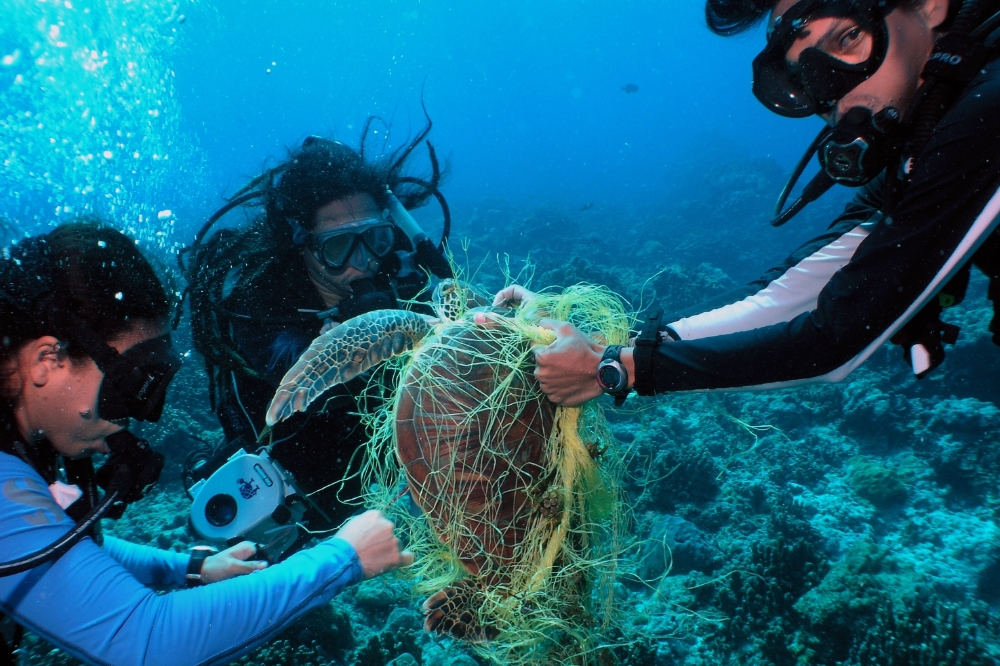
Three biologists on a coral reef survey work to free a green sea turtle entangle in a fishing net, Tamuning, Guam, USA
The littering of beaches with ghost gear poses a danger for animals.
It ruins our enjoyment of our wonderful coastline and can be expensive to clear up. Organisations like Surfers Against Sewage and Marine Conservation Society organise big community beach cleans, but often large nets, old pots and other fishing gear are difficult to remove because they are full of sand or too heavy, meaning they remain on the beach and pose a danger for animals and ocean lovers.
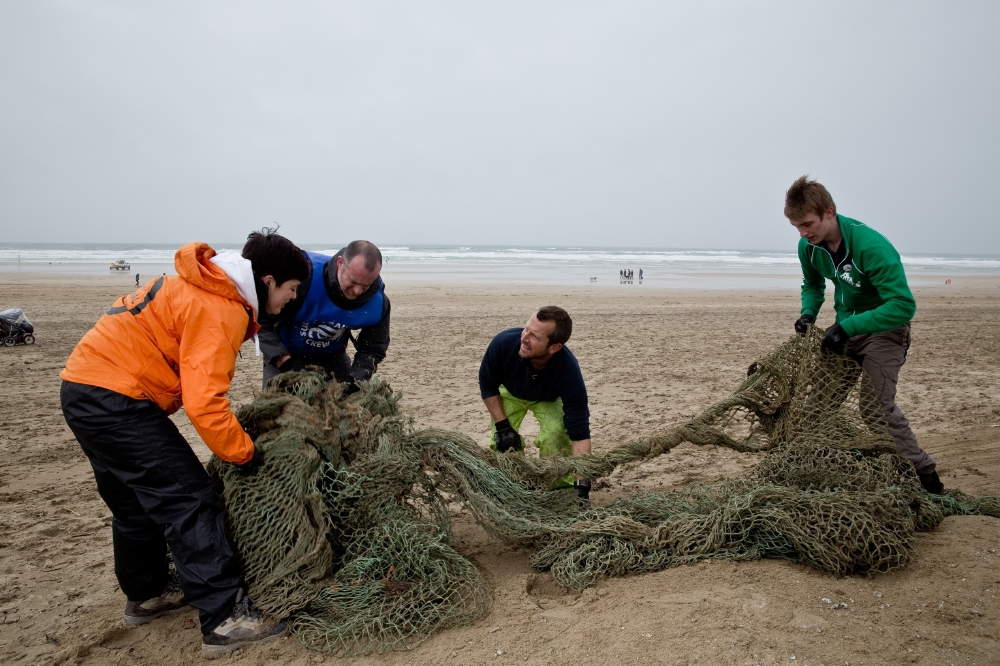
World Animal Protection UK at a beach clean with Surfers Against Sewage on Perranporth beach, Cornwall
For more information on our Sea Change Campaign, which aims to prevent ghost fishing gear entering the water, go to http://www.worldanimalprotection.org.uk/campaigns/wildlife/sea-change-marine-litter
Tagged in South Africa Animals USA Cornwall Devon

